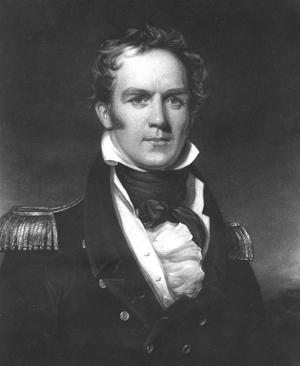Tuesday, Januarth 24th [1826].—Early this morning the king paid us a visit, accompanied by his favourite eunuch and Abaco the messenger. . . . We first began inquiring after his health. . . . that we had heard his (the king of Youriba's) name mentioned in England as a geat king . . . I then told him the king of England would be glad to make him his friend, and that whatever he, the king of Youriba, might have occasion for would be sent from England by one of the king's ships to Badagry. The king then replied in assuring us that we were truly welcome to his country; that he had frequently heard of white men; but that neither himself, nor his father, nor any of his ancestors had ever seen one. He was glad that white men had come at this time; and now he trusted his country would be put right, his enemies brought to submission, and he would be enabled to build up his father's house, which war had destroyed. This he spoke in such a feeling and energetic manner, and repeated it so many times, that I could not help sympathising with him.
—Clapperton (pp. 38-39)
One of two expedition leaders to return from the Bornu Mission in 1825 [see DENHAM], Clapperton was promoted to commander and sent back to Africa to build on the relationship he had established with Bello, the sultan of the Fellans (Fulani), in Sokoto (in today’s northwestern Nigeria). The British Colonial Office wanted to develop commerce in the region, to check the slave trade entering the Bight of Benin, and to expand geographic knowledge of the country. Clapperton was given “suitable companions and presents,” and he added Richard Lander, who had relevant experience from traveling in the Cape Colony, as his personal assistant.
On 7 December 1825, the group started overland from Badagry (on the coast of Nigeria). Afflicted with tropical fever and dysentery, they eventually crossed the Niger River at Bussa, where Mungo Park had died [see PARK], and reached Kano in July and Sokoto in October. There Bello, involved in hostilities with the Sheikh of Bornu, at first received them warmly, but he would not allow them to travel east to Bornu with their gifts, nor, in what seemed a reversal, did he seem interested in relations with the British government. An attempt to find Timbuktu, as they had hoped, was not possible in the current climate of civil war. They were stuck, and the mission was effectively over. (Later, Lander described Clapperton as sinking into a low and distressed state, never smiling again.) Their English companions had died in route, and a long bout with dysentery eventually claimed Clapperton’s life on 13 April 1827. Obtaining Bello’s permission to leave, Lander tried a more easterly path on his return but was turned back by the Fulani at Dunrora and eventually forced to retrace his former route from Zegzeg (today’s Zaria) to Badagry, where he arrived on 21 November after suffering great deprivations. He reached England with Clapperton’s journal in April of the following year, determined to lead his own expedition on the Niger [see LANDER].
